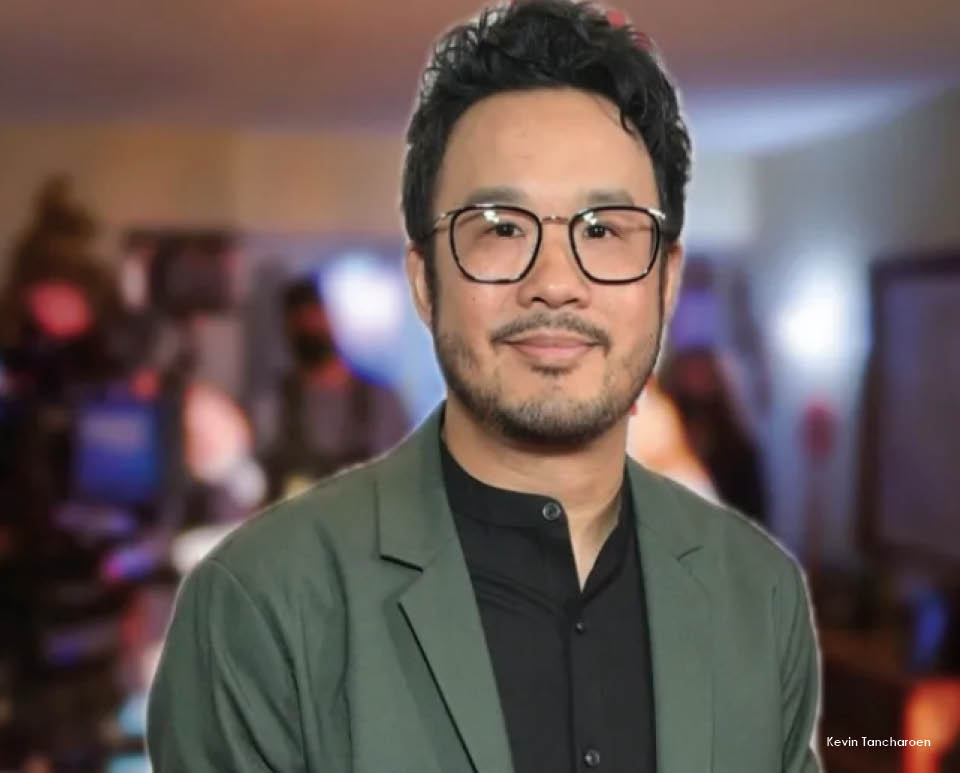
When director Kevin Tancharoen looked at available career options and saw only limitations, he took a bold step: “I picked up my camera and my own money and went ahead and shot Mortal Kombat: Rebirth on my own.”
That was after early ambitions to create creature designs and monsters and a successful run in dance, first as a back-up dancer and then a choreographer.
“I knew that no one ever was going to let this dance-and-song guy do his first love, which was nerdy comic book genre stuff. So I was like, I’ll just have to do it,” he says.
If not for that, “I wouldn’t have been able to do S.H.I.E.L.D. or The Flash or The Book of Boba Fett or The Brothers Sun. It really all stemmed from that decision. Sometimes, actually, most of the time, you have to take a bet on yourself. Because, literally no one is going to f*ckin do it.”
Tancharoen describes himself as a “pop culture nerd growing up”.
“I remember seeing the ‘making of’ specials on the VHS tapes of Ninja Turtles and Terminator 2. They showed the animatronics and the rubber suits and just the whole process. And I was like, ‘Oh my God, that seems like so much fun.’
He took a few classes, followed a path into dance and choreography, and ended up directing the Britney Spears tour when he was 19, and then, with mentor Wade Robson, worked with others like Christina (Aguilera) and N’Sync and Backstreet Boys.
But... “I don’t think I was made for the music business... It’s a very specific energy. And as much as fun as it was, in my young adult life, I wanted to get back to my first love, which was film and TV, specifically genre,” he says.
Was there pushback to his transition from music productions to narrative film?
“I understood that my first way in was always going to be something with dance and music involved. I was like, I know how Hollywood is, they tend to categorise you as best they can. So I knew my first anything was going to be that. And then I did [Fame] when I was 24 and it was a hell of an experience. It was great and I worked with some of the best people, but it was definitely a learning curve when it came to post and I got an awakening on what was lying ahead. So it was a valuable lesson.”
“I think I always had to not give up. I have an obsessive personality, so if I want to learn about something, it’s literally all I can think about all day long. So I think I my first love never went away. And I was like, ‘I have to do it, I have to do it, I just have to do it.’ And even if I failed, there’s such a value in failure. That’s something my parents taught me.”
“A lot of heroes that I look up to all had the same stories about never giving up. And I think you just need someone to tell you that the hardest part is to start. When you’re looking at a blank page or an empty edit session, it’s daunting. But the second you put in five clips or write a paragraph, you’re like, ‘okay…now I can work on this.’ That first step is always the hardest one to take.”
Asian representation in film and TV has ...
When director Kevin Tancharoen looked at available career options and saw only limitations, he took a bold step: “I picked up my camera and my own money and went ahead and shot Mortal Kombat: Rebirth on my own.”
That was after early ambitions to create creature designs and monsters and a successful run in dance, first as a back-up dancer and then a choreographer.
“I knew that no one ever was going to let this dance-and-song guy do his first love, which was nerdy comic book genre stuff. So I was like, I’ll just have to do it,” he says.
If not for that, “I wouldn’t have been able to do S.H.I.E.L.D. or The Flash or The Book of Boba Fett or The Brothers Sun. It really all stemmed from that decision. Sometimes, actually, most of the time, you have to take a bet on yourself. Because, literally no one is going to f*ckin do it.”
Tancharoen describes himself as a “pop culture nerd growing up”.
“I remember seeing the ‘making of’ specials on the VHS tapes of Ninja Turtles and Terminator 2. They showed the animatronics and the rubber suits and just the whole process. And I was like, ‘Oh my God, that seems like so much fun.’
He took a few classes, followed a path into dance and choreography, and ended up directing the Britney Spears tour when he was 19, and then, with mentor Wade Robson, worked with others like Christina (Aguilera) and N’Sync and Backstreet Boys.
But... “I don’t think I was made for the music business... It’s a very specific energy. And as much as fun as it was, in my young adult life, I wanted to get back to my first love, which was film and TV, specifically genre,” he says.
Was there pushback to his transition from music productions to narrative film?
“I understood that my first way in was always going to be something with dance and music involved. I was like, I know how Hollywood is, they tend to categorise you as best they can. So I knew my first anything was going to be that. And then I did [Fame] when I was 24 and it was a hell of an experience. It was great and I worked with some of the best people, but it was definitely a learning curve when it came to post and I got an awakening on what was lying ahead. So it was a valuable lesson.”
“I think I always had to not give up. I have an obsessive personality, so if I want to learn about something, it’s literally all I can think about all day long. So I think I my first love never went away. And I was like, ‘I have to do it, I have to do it, I just have to do it.’ And even if I failed, there’s such a value in failure. That’s something my parents taught me.”
“A lot of heroes that I look up to all had the same stories about never giving up. And I think you just need someone to tell you that the hardest part is to start. When you’re looking at a blank page or an empty edit session, it’s daunting. But the second you put in five clips or write a paragraph, you’re like, ‘okay…now I can work on this.’ That first step is always the hardest one to take.”
Asian representation in film and TV has stepped up in the past five or six years, with movies like Joy Ride and series like Beef, “where we’ve earned the right to tell stories, and the people just so happen to be Asian.
Tancharoen’s first experience with an almost-entirely Asian set was on Thai Cave Rescue for Netflix.
“Not only was everyone on set Asian, but Thai. I had this weird, I can only say, spiritual experience that washed over me. Like I felt a community without having to say anything, and I never felt this before. It felt like family all of a sudden,” he says.
He was “definitely” nervous taking on The Brothers Sun because, he says, “I’ve never worked on something that felt as relatable as this show did to me. I saw myself in the two lead characters completely. I’m part Bruce (Sam Song Li) and part Charles (Justin Chien). I don’t go out killing people, but the traumas and insecurities that they both have, I feel like I
have both of them in my brain.”
If he’s disappointed that The Brothers Sun has not been renewed, Tancharoen has zero regrets. “This entire experience was transcendent... unlike anything I’ve worked on”.
ContentAsia is collaborating with the Asian A.V Club on a series of interviews with Asian filmmakers and talent in Hollywood. The full interviews are available on the Asian A.V. Club newsletter. Click here to read & subscribe!



















